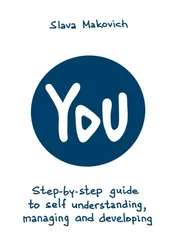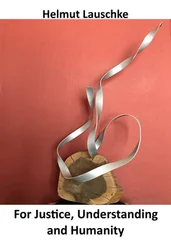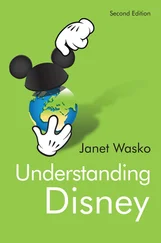Finally, what about football? Here I can write a triumphant 'Yes!' But our feeling that English football is English rather than the football of Great Britain is a surprisingly recent phenomenon - perhaps going back to the mid-1990s, but no earlier. International football competitions require national teams, and our team is English, not Scottish or Welsh. But until recently, supporters used to carry the Union Jack, the flag of the United Kingdom Now the English sally forth to beat their rivals carrying the flag of St George which is the English national flag. In the 1980s and even in the 1990s the flag of St George was scarcely ever used or indeed known by most English people. The red cross on a white background was suddenly 'rediscovered' about fifteen years ago and is now deliberately used for uniting the English, at least during the World Cup tournament. (Russians will see many parallels: you too have had to become accustomed to a new (old) flag, and an old (new) National Anthem.
So none of these answers easily explain what it is to be English. In England, we are unwilling to be very explicit. Our personal feelings are not acknowledged in our passports where we are simply British citizens. Whether this will still be true in twenty years' time is open to question.
A Devolved Britain
'Devolved power' is power that is passed from the central government to smaller governing units. One of our debates is about how independent and separate the different parts of the United Kingdom should be.
The Scots, the Welsh and the Northern Irish have been more explicit than the English about the distinct cultures of their countries. Scotland has a long history of vigorous independence. When the Romans marched northwards across the country in 55 A.D. they found it impossible (or impractical) to subdue the Pictish tribes who lived in the north. Eventually they built a wall (Hadrian's Wall, some of which still stands today) right across the country, separating Roman Britain from an area which roughly corresponds to present-day Scotland. The kingdom of Scotland has existed for many centuries. (Think of Shakespeare's play Macbeth, based on a historical character in eleventh century Scotland!) Despite repeated attempts by the English at conquest and endless border raids from both sides, the two countries were eventually united peacefully. In the early sixteenth century an English princess married a Scottish king, and a century later, after the death of Queen Elizabeth of England, the Scottish King James inherited the English throne in 1603. Scotland and England joined in a political union in 1707, when the Parliament at Westminster in London became the Parliament for both countries. But Scotland already had a long history of independent foreign policy; it had developed its own religious and legal institutions, and was much more advanced than England in educating its population. Since the Union, the Scots, despite their small population, have taken a very large part in politics, education and engineering in the activities of the United Kingdom both here and overseas.
Wales, though much smaller than Scotland, is, like Scotland, a country of mountains and seacoast without much fertile land and with difficult communications. It was conquered by the English in the Middle Ages but was never absorbed into England. Economically, Wales needs the greater wealth of England and could never be effectively independent of its big neighbour, but the Welsh people like to point out that they may be a small nation but they have a strong national identity. The Welsh language is the only indigenous language in these islands, apart from English, which is widely known and spoken. About 600,000 people in Wales claim to speak it, out of a population of nearly three million. This figure includes many people who are learning Welsh, but even so there are still parts of Wales where it is the first language of the population. The Welsh religious and sporting heritage is also notably different from that of the English.
So the Englishman who crosses the border into Scotland or into Wales is soon aware that he is in a new country, not because of the flag flying from public buildings, but because of hundreds of small social and cultural differences.
Northern Ireland is an anomaly. The one-and-half million people who live in the Province have suffered - and inflicted suffering on each other - for eighty years. The political problems in Northern Ireland have a long history, are based on the bitterness of opposing religious groups, and may in the future be changed by demography. At present the 'Protestants' who want to remain as part of the United Kingdom are in the majority while the 'Catholics' who want to be united with the completely independent Republic of Ireland are in the minority. The words in inverted commas define communities as well as religious beliefs. In no other part of the United Kingdom is religious affiliation so significant; but it is defined by the community. If you are born a Catholic, you are a Catholic - the commitment is almost tribal. As I write in 2009, the thirty year period of 'the Troubles' when Protestants and Catholics turned on one another, and the ten years of protracted and painful negotiations between the two sides seem to have resulted in basic peace and a form of self-government involving both groups.
Recently, the situation in Scotland and Wales has also changed strikingly. In 1997 the government arranged for everyone in Scotland and Wales to vote on whether they wanted their country to have greater independence from 'Westminster' which is the name we give to the Government-plus-Parliament of the United Kingdom. The voters were not too sure about this idea. They feared that they might get less money from the centre and perhaps be forgotten by the government. But in the end, of those who actually voted, more than two-thirds in each country agreed that they wanted more 'devolved powers'. Scotland (population 5 million) acquired its own Parliament, and Wales (population 3 million) acquired a Welsh Assembly. These changes meant that not all decisions concerning these countries were made in Parliament at Westminster. Both countries took steps towards greater autonomy. Scotland always had a separate legal system and, in some respects, a separate education system, but legislation within the new Scottish parliament and the Welsh Assembly since 1999 has meant, for example, that the Scots pay for their higher education, and the Welsh organize their hospitals in different ways from the English. These distinctions apply to the people who live in Scotland or in Wales, whether they think of themselves as Scottish or Welsh or English or something else. Moreover, as the Scots have been enjoying their devolved power for a decade, the movement for separation from the Union, and Scottish independence has gained ground.
Nobody quite knows what the Scots would say today if there was a referendum on the matter, but it is possible that a majority would vote to set sail on uncertain seas, free from the grasp of that over-populated country to the south, England.
Ethnic Diversity
The question 'Who are we?' can also be used to answer questions about 'race' or 'ethnicity'. 'Where do we come from? Where did our parents come from?' In the Census of 1991 people were asked for the first time how they would describe their 'ethnic origin'. 'Ethnicity' is a confusing term. Does it mean 'race'? If so, how do you decide how many races exist, and which individual belongs to which race? Biologically we are all part of the 'human race' and some people regularly answer 'human race' to questions about their ethnicity. But even if the questions may seem strange or intrusive, they were a conscientious response to a specific situation which has been developing during the last four decades of the twentieth century.
Читать дальше












